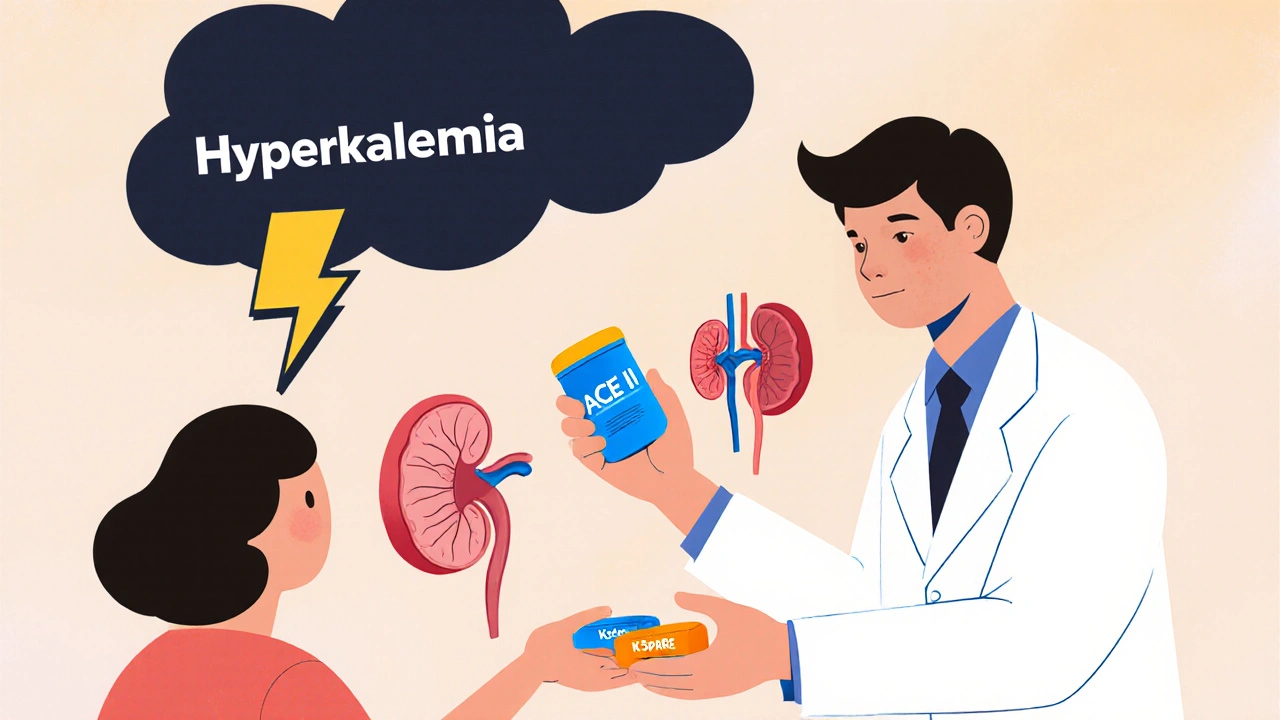Hyperkalemia
When dealing with Hyperkalemia, a condition where blood potassium levels rise above the normal range. Also known as high potassium, it can trigger muscle weakness, cardiac arrhythmias, and even emergency situations. The body normally keeps potassium tightly regulated, but factors like Potassium, an essential electrolyte that supports nerve and muscle function overload can throw the balance off. Men with Kidney disease, impairment of the kidneys' ability to excrete excess potassium are especially vulnerable, because the kidneys are the primary route for potassium clearance. The link between hyperkalemia and kidney health is direct: as kidney function declines, serum potassium climbs, creating a feedback loop that demands careful monitoring.
What Triggers the Rise?
Many everyday meds and health conditions push potassium levels upward. ACE inhibitors, drugs that relax blood vessels by blocking angiotensin‑converting enzyme are a common culprit; they reduce aldosterone, which normally tells the kidneys to retain sodium and excrete potassium. Add a potassium‑sparing diuretic, and the effect multiplies. Certain antibiotics, like trimethoprim‑sulfamethoxazole, and diabetes medicines that affect renal perfusion also play a role. The heart’s electrical system gives us a clear warning: ECG changes, alterations in the electrocardiogram such as peaked T‑waves, widened QRS complexes, and eventually sine‑wave patterns appear as potassium spikes. Recognizing these patterns is vital—each millimole rise can shorten the QT interval and increase the risk of ventricular fibrillation. In practice, clinicians treat hyperkalemia with rapid‑acting measures: insulin‑glucose infusions shift potassium into cells, sodium bicarbonate corrects accompanying acidosis, and loop diuretics or sodium polystyrene sulfonate boost excretion. Monitoring labs, adjusting meds, and educating patients about high‑potassium foods complete the strategy.
Below you’ll find a curated set of articles that dig deeper into the drugs, dosages, and health scenarios tied to potassium balance. From detailed antibiotic comparisons to diabetes medication guides, each piece offers insight into how common prescriptions might influence serum potassium, especially in men dealing with kidney issues or cardiovascular risk. Use this collection to spot potential triggers, understand treatment choices, and stay ahead of complications. Ready to explore the specifics? The articles ahead break down the science and practical steps you need to keep hyperkalemia in check.
Learn why ACE inhibitors combined with potassium‑sparing diuretics boost hyperkalemia risk, who is most vulnerable, and how to monitor, prevent, and treat dangerous potassium spikes.

